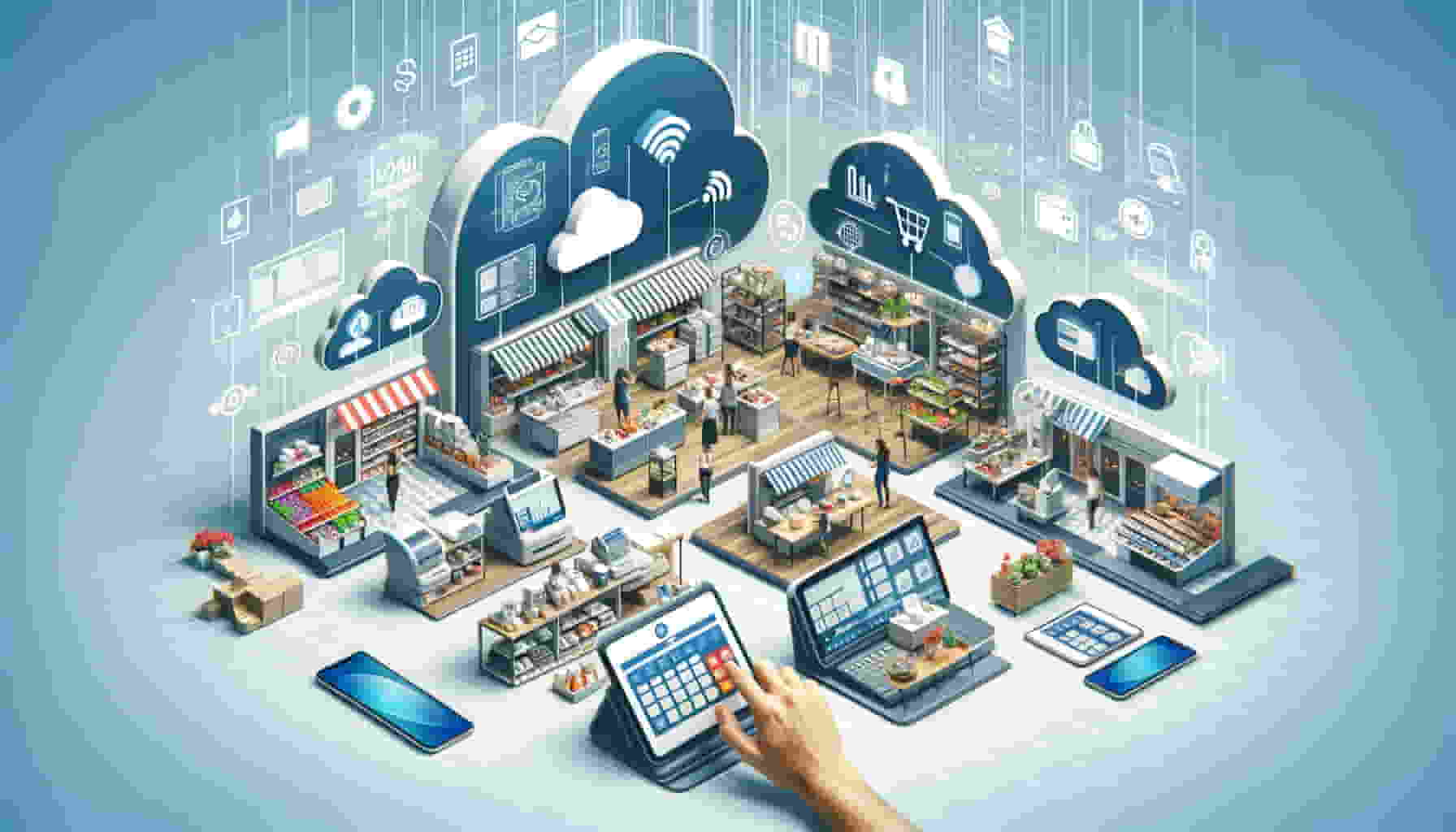The Future of Point of Sale: How Cloud-Based ePOS Systems Are Transforming Retail and Hospitality

The restaurant industry is constantly evolving, and the way businesses handle transactions has been no exception. Traditional point-of-sale (POS) systems, which rely on local servers or computers, are gradually being replaced by cloud-based ePOS systems. These innovative solutions are transforming the retail and hospitality sectors, offering a range of benefits that can help businesses streamline operations, enhance customer experiences, and drive growth. In this article, we’ll explore how cloud-based ePOS systems are shaping the future of the POS landscape and how they can benefit restaurant owners.
The Rise of Cloud-Based ePOS Systems:
Cloud computing has revolutionized the way businesses operate, and the point-of-sale industry is no exception. Cloud based ePOS systems leverage the power of the internet to host software and data on remote servers, eliminating the need for businesses to maintain and update expensive hardware and software on-site. This technological shift has opened up new possibilities for restaurant owners, allowing them to access their POS systems from anywhere, anytime, using various internet-connected devices.
Advantages of Cloud-Based ePOS Systems:
1. Increased Mobility and Accessibility:
With a cloud-based ePOS system, restaurant owners and managers can access their POS data and functions from any internet-connected device, such as smartphones, tablets, or laptops. This increased mobility allows them to manage their business from anywhere, whether they’re on-site, at home, or traveling. They can monitor sales, update menus, and track inventory in real time, enhancing their ability to make informed decisions and respond quickly to changing circumstances.
2. Cost-Effective and Scalable:
Traditional POS systems often require significant upfront investments in hardware, software, and maintenance contracts. In contrast, cloud-based ePOS systems operate on a subscription-based model, eliminating the need for expensive hardware and reducing upfront costs. Additionally, these systems are highly scalable, allowing businesses to easily add or remove features and functionalities as their needs evolve, without the need for complex installations or upgrades.
3. Seamless Integration and Data Management:
Cloud-based ePOS systems can seamlessly integrate with various business tools and applications, such as accounting software, inventory management systems, and customer relationship management (CRM) platforms. This integration enables real-time data synchronization, ensuring that all information is up-to-date and accessible from a centralized location. This streamlines processes reduces manual data entry, and minimizes the risk of errors, ultimately improving operational efficiency.
4. Enhanced Data Security and Backup:
Cloud-based ePOS systems typically employ robust security measures, including encryption, firewalls, and regular data backups, to protect sensitive business and customer information. These systems often have failover mechanisms in place, ensuring that data is always accessible, even in the event of hardware failure or natural disasters. This level of security and redundancy can provide peace of mind for restaurant owners, knowing that their critical data is safe and secure.
5. Improved Customer Experiences:
Cloud-based ePOS systems can offer features that enhance customer experiences, such as mobile ordering, contactless payments, and integrated loyalty programs. These capabilities can streamline the ordering and payment processes, reduce wait times, and foster customer loyalty, ultimately leading to increased customer satisfaction and potential revenue growth.
Embracing the Future with Cloud-Based ePOS Systems:
As the restaurant industry continues to evolve, cloud-based ePOS systems are emerging as a game-changer, offering a range of benefits that can help businesses stay competitive and thrive in a rapidly changing market. By embracing this technology, restaurant owners can enjoy increased mobility, cost-effectiveness, seamless integration, enhanced data security, and improved customer experiences. As the demand for cloud-based solutions continues to grow, it’s essential for businesses to stay informed and consider how these systems can contribute to their long-term success.
Conclusion:
Cloud-based ePOS systems are reshaping the landscape of the retail and hospitality industries, providing restaurant owners with a powerful and flexible solution for managing their operations. By leveraging the advantages of cloud computing, businesses can streamline processes, enhance data management, improve customer experiences, and position themselves for future growth. As technology continues to evolve, embracing cloud-based ePOS systems can help restaurant owners stay ahead of the curve and maintain a competitive edge in the ever-changing world of point-of-sale. Click here to learn more.







Leave a Reply